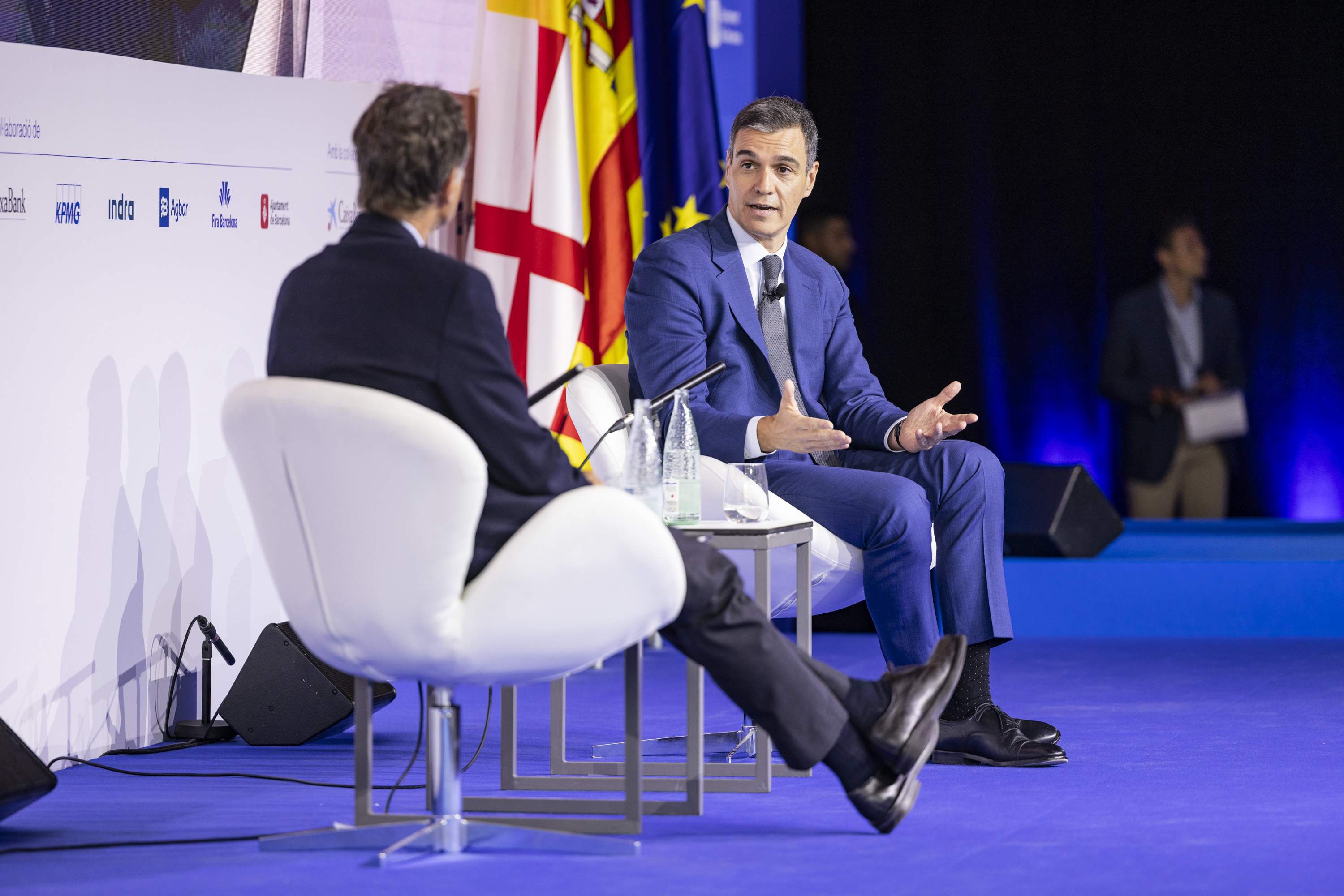Nothing beyond what Catalonia's Statute of Autonomy says. That is the only commitment that the president of the Cercle d'Economia business association, Jaume Guardiola, has managed to extract from the Spanish prime minister, Pedro Sánchez, on a new financing model for Catalonia.
"I undertake to address the debate on autonomous community funding so that Catalonia has more and better funding in compliance with the principles of the Statute endorsed by the Constitutional Court". The "Statute" is the Statute of Autonomy, the law specifying and limiting Catalonia's powers as an autonomous community. Sánchez added: "The Statute gives many levers to improve the financing of Catalonia and we want to do it bilaterally, together with the Generalitat, but also multilaterally". The issue of financing "is not a zero-sum game, because all [Spanish] territories are connected. But we will address the issue because it is true that it dates from 2009", he added.
On these lines, the Spanish PM also distanced himself from the "unique" financing proposal for Catalonia, despite the fact that it is part of the 2023 agreements made with both ERC and Junts to allow him to form a Spanish government.
🟡 Aragonès government's financing proposal based on 100% of taxes paid in Catalonia
🟡 Pre-election: Puigdemont demands that 100% of Catalan tax goes to Generalitat
Sánchez made these statements this Friday at the closing session of the meeting of the Cercle d'Economia, which drew about 500 businesspeople to Barcelona's Palau de Congressos for three days. The PM did not say anything about two other demands from the Cercle: that the model's solidarity mechanism guarantee regularity, and that communities with an exceptional tax regime (Euskadi and Navarre) be incorporated into the model.
And what does Catalonia's Statute say? In fact, it talks about "the establishment, within two years, of a consortium or equivalent entity" in which the Spanish state's tax agency and the Catalan tax agency will "participate equally with the aim of managing, collecting, liquidating and inspecting the taxes that the State collects in Catalonia and that are not its own". This part of the Statute has not been applied and it is what the Catalan Socialists (PSC) defended in the election on May 12th in terms of financing: complying with the Statute.
The experts, however, disagree on whether the existence of a consortium would imply more resources for Catalonia; in any case, it would mean that, whatever it was entitled to, it would obtain it earlier, without having to wait for the state's liquidation.
The Spanish PM reminded the audience that since 2018 Catalonia has already obtained more resources than in the past, thanks to payments worth 49 billion euros, which he described as "historic", in European funds and infrastructure investments. With all of this, Sánchez said he was committed to "redoubling investments in infrastructure and promoting strategic works, such as the Mediterranean corridor". But no more detail than that.

